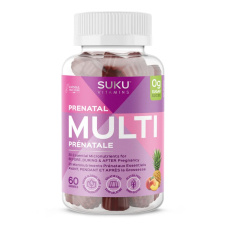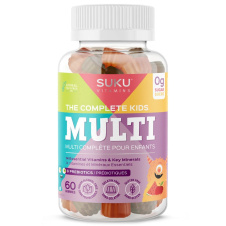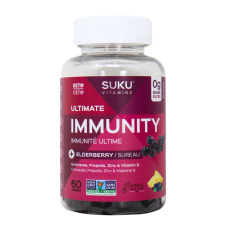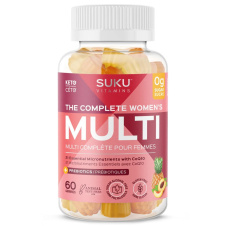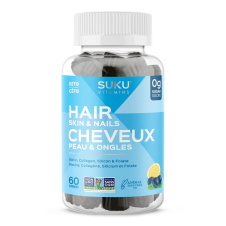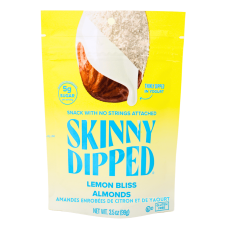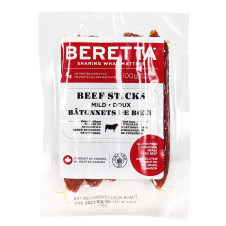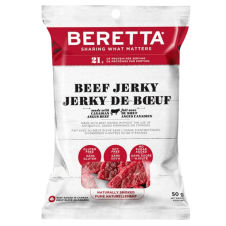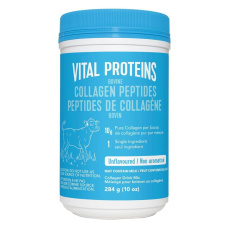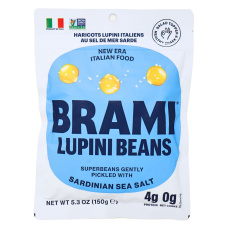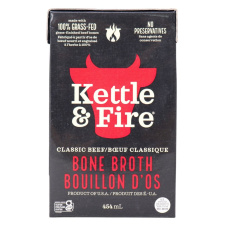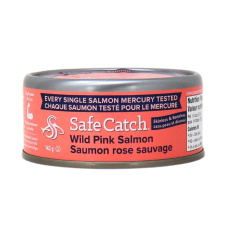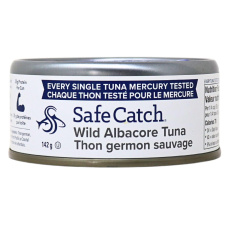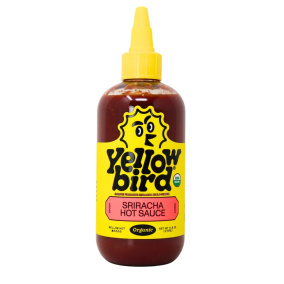
The Best Vitamins for Hair Growth
You may be wondering what these microscopic-like strands that pop out of your scalp could possibly need to thrive. After all, they’re so tiny that these strands couldn’t possibly require much, right? Wrong. Our hair is quite complex. Each strand of hair requires proper nutrition and a favourable environment to become its best self. Since a variety of vitamins and minerals make up your hair, you’ll have to ensure that you’re getting enough of each of these vitamins on a daily basis. If you’re unsure as to which nutrient deficiency could be causing your hair loss or slow hair growth, then you could always look into adding a multivitamin to your daily routine. Multivitamins provide a blend of vitamins and minerals that can help your hair grow. However, taking a multivitamin when you don’t need one could lead to toxicity. So, it is always best to check with your doctor and try to identify the nutrient deficiency first.
What Vitamins are Good for Hair Growth?
Vitamin B7 (Biotin):
Biotin is often referred to as the beauty vitamin because of its role in maintaining healthy hair, skin and nails. Biotin is responsible for strengthening the protein in your hair, allowing your hair to grow. A deficiency in biotin is often associated with hair loss. Those that have a biotin deficiency and the associated hair loss symptom experience hair growth with biotin supplementation. Some are born with a biotin deficiency while others acquire it later in life in a variety of ways: imbalanced diet, poor absorption of nutrients, alcoholism, pregnancy, medications or even through high consumption of raw eggs. Some natural sources of food where you can find biotin include meat, fish, eggs, seeds, and nuts to name a few.
Vitamin C:
One of the ways that vitamin C deficiency can present itself is as corkscrew hair. Corkscrew hair refers to irregularly curled pieces of unhealthy hair protruding bleeding hair follicles. So, sufficient vitamin C levels may aid in maintaining the health of your hair. Additionally, our bodies need adequate vitamin C levels in order to absorb iron. And, as previously stated, iron may also participate in maintaining your luscious hair. So, a deficiency in vitamin C could also lead to a deficiency in iron, both which could compromise that gorgeous main your after. If you don’t already, you should try to include foods that are naturally high in vitamin C such as broccoli, leafy greens, red pepper and citrus fruits. However, vitamin C supplements are available if needed.
Vitamin A:
One of the reasons that your hair may be unable to grow is due to constant breakage. But, don’t worry, this is where vitamin A comes in. Vitamin A is a natural antioxidant that can help to prevent hair breakage, moisturize the scalp, and can give your hair follicles the nudge they might need to grow long and healthy hair. You can find vitamin A naturally in foods like carrots, broccoli, cantelope, squash, fish and more. However, more is not always better. Too much vitamin A can also cause hair loss. Depending on your age and sex, you’ll need anywhere from 600 to 3000 micrograms of vitamin A per day.
Vitamin B12:
Vitamin B12 has gained popularity over the years for it’s perceived ability to help with hair loss. Vitamin B12 is responsible for providing the framework for new parts of your body, like hair. In fact, one of the notable symptoms of a vitamin B12 deficiency is hair loss. However, scientists aren’t quite sure. However, getting sufficient amounts of vitamin B12 is essential to keep your body up and running, and if you are deficient in vitamin B12 you may experience some hair growth. Vitamin B12 is typically found in animal products like meat, eggs and dairy but there are vegan vitamin B12 supplements available.
Vitamin E:
Vitamin is a well known antioxidant that can protect your hair and promote growth. In fact, many individuals that suffer from sudden hair loss often see hair regrowth with oral or topical vitamin E supplementation. But like other vitamins, overconsumption can cause hair loss. If you suspect that you need a little more vitamin E in your diet, some foods that you should include in your diet are wheat germ, spinach, almonds and fish.
Vitamin B2 (Riboflavin):
Riboflavin is responsible for creating new cells in the body. While rare a deficiency in riboflavin can result in hair loss. You can naturally find riboflavin in eggs, organ meat or fortified grains and cereals.
Vitamin D:
Vitamin D is another important vitamin when it comes to hair health. When vitamin D is low, hair may break easily, thin or stop growing altogether. Vitamin D is what helps your hair cells preserve their nutrients and protects your hair cells from any damage, like inflammation and heat. Ironically, one of the main natural sources of vitamin D is from heat, more specifically sunshine! You can also find vitamin D in foods like salmon, egg yolks, red meat, and some fortified milks and cereals. However, as Canadians we often struggle to get enough vitamin D and often require supplementation.
Vitamin B3 (Niacin):
If you want that shiny, commercial-like hair then Niacin is a vitamin you’ll want to pay attention to. Niacin is responsible for encouraging blood flow to the scalp, which allows your hair follicles to get the nutrients it needs to thrive. As you might expect, a deficiency in Niacin can result in hair fall out. So, ensuring that you get enough niacin is essential for lustrous hair. Good natural sources of niacin include nuts, mushrooms, beef and tuna.
What Minerals Do You Need for Hair Growth:
Just like vitamins are important for hair growth, so are minerals. Not getting enough of any of these minerals could be sabotaging your hair growth. Check it out:
Iron:
One of the most common nutrient deficiencies in the world is iron deficiency. Iron is essential for creating the blood cells that deliver the nutrients to the hair follicles, allowing the hair to grow. Coincidentally, iron deficiency is commonly present in women with hair loss. Although, there is some debate as to whether an iron deficiency can affect hair growth, iron is a crucial nutrient for the body and should be consumed at recommended amounts for best results. Good natural sources of iron include: meat, seafood, tofu, beans, peas, almonds, cashews, spinach, asparagus, beets, and fortified cereals.
Selenium:
Selenium plays a significant role in hair growth. It works as an antioxidant and keeps your hormones in check, promoting healthy hair. Although rare, when selenium deficiency occurs you might experience hair loss. Some physicians implement selenium supplementation into the care plans of those with serious illnesses, like cancer, and often see a reduction in hair loss. You can naturally find selenium in seafood, meat, some nuts, grains, and dairy products. However, it is important to note that consuming too much selenium can cause hair loss. Daily recommendations for selenium range from 15 micrograms to 55 micrograms depending on your age and sex.
Folate & Folic Acid
Folate plays an important role in your hair health. Folate helps produce DNA and RNA, which is essential for your hair cells to multiply, causing your hair to grow. Although rare, folate deficiency is common among pregnant women, and those that suffer from poor nutrient absorption. And, like you probably anticipated, a deficiency in folate may negatively affect your hair health. You can naturally get more folate in your diet by incorporating some leafy greens, fruits, nuts, meat, poultry and beans.
Zinc
Hair fallout is a common problem associated with a zinc deficiency. Zinc ensures that our cells are healthy and encourages the body to produce more protein, which can then turn into hair. Zinc deficiency is most common amongst those with digestive issues, pregnant females, alcoholics and vegetarians. But, no need to worry, most people see improvements in their hair with zinc supplementation. If you are looking for a natural way to add zinc to your diet, try eating more whole grains, beans, nuts, and seafood like crab and lobster.
Bonus tip: Omega-3 & Omega 6
Omega-3s and Omega-6s are fatty acids that are important for hair growth. A deficiency in either of these can result in hair lightening or hair loss from not just your scalp but also your eyebrows. Good natural sources of these fatty acids are seafood like salmon, sardines and mackerel. You can also find some in nuts and seeds like walnuts and flaxseeds, but supplementation may be required.
Extra Bonus Tip:
If you’ve made it this far then you’re on the right track to luscious hair. Above, we’ve mainly touched on vitamins and minerals but there is one important component of hair that we’ve left out, and that is protein! Protein is what makes up every single millimeter of hair that pops out of your scalp. Consequently, protein deficiency can cause hair loss, hair thinning and stop hair growth altogether. So, you may benefit from adding more protein to your diet. You can start by adding more natural protein sources such as beans, lentils, nuts, seafood, and meat and if necessary incorporate a protein or collagen supplement into your diet.
Now that you know all the tips and tricks in the kitchen to get that voluminous, shiny hair that you’re after, it is also important to incorporate some other hair growth hacks that involve less chewing. Look for opportunities in your daily routine where you can avoid hair styling and hair styling tools, or pulling your hair back. It’s also important to avoid stress and live an active lifestyle. Overall, the secret to getting that commercial-worthy hair is by living a healthy lifestyle. Congratulations, now you’re ready to be the next Rapunzel.
*Disclaimer: If you suspect you have a nutrient deficiency, always consult with your physician prior to supplementing. Do not use supplements if you do not have a known nutrient deficiency. Always, aim to fix your deficiencies through dietary and lifestyle changes prior to supplementing.



